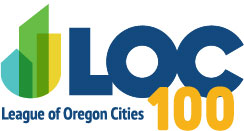LOC News
State of the Session
On May 3, Senate Republicans walked out, preventing the Senate from holding a floor session due to a quorum standard of two-thirds (20 senators). Oregon is one of only four states that established quorums greater than 50+1. This has been used by Republicans to protest legislation in 2021, and again in 2019. Democrats also used this strategy in 2001. There are now nine Republican senators and one Independent who exceed 10 unexcused absences, and therefore cannot run for re-election after their current term expires, per Measure 113, which passed by a margin of 68-32 in 2022. Republicans are expected to challenge the constitutionality of the bill. In addition, Senate President Wagner started assessing daily fines of $325 for Senators with unexcused absences. The fine is roughly equivalent to the daily pay/stipend legislators receive when they are in session.
For the LOC’s lobby team, our work has not stopped, although every day presents a unique challenge. Our focus has been to tee up all legislative priorities and budget requests over the last several weeks in hopes of a window opening to push the legislation through the process. We are also actively working on some key remaining, unresolved legislative priorities. The focus of our energy has been on economic incentives related to enterprise zones, SIP-gainshare, the Interstate Bridge replacement, and Governor Kotek’s housing bill. There are, of course, any number of agency budgets that are stacked up and waiting for a window to move through the legislative process as well.
The LOC has made progress on key issues for cities, but still has a long way to go to reach our top legislative priorities for the 2023 session. Many of these priorities are sitting in agency budget bills, or are part of policy bills that have yet to clear the Senate floor due to the Republican walkout. Below is an overview:
Legislation Signed by Governor:
HB 2095 – Photo Radar. Introduced at the request of the LOC. All cities now have access to mobile and fixed photo radar for speed management. In addition, flexibility has been extended to 10 miles per hour for local speed-setting authority.
HB 3097 – In-Conduit Hydro-Electric. This bill allows municipalities and utility districts to apply directly to the Oregon Water Resources Department for a certificate to use water for hydroelectric purposes within an in-pipe system. These projects can generate 200,000+ KwH of carbon-free electricity per year – enough to power 20 homes for a year and reduce more than 162,000 pounds of carbon annually, creating renewable energy to help local governments meet their climate action goals.
HB 3111 – Public Records Exemption. Introduced at the request of the LOC, this legislation closes a loophole in public records law that allowed private data outside of a personnel record to be released in a records request. The bill also gives public retirement plans operated by local governments the same privacy protections as the Public Employee Retirement System.
SB 123 – Recycling Labeling. Requires a producer responsibility organization to consider and develop recommendations for using digital labeling to convey information about recyclability claims and include digital labeling recommendations in their producer responsibility program plan submitted to the Oregon Department of Environmental Quality.
SB 340 – Retail Theft. This legislation increases sanctions for organized retail theft and gives prosecutors more tools to pursue high-value commercial crimes perpetrated in a systematic way.
SB 812 – Drone Regulations. This bill allows cities to prohibit the landing and launching of uncrewed ariel vehicles, also known as drones, in parks.
Contact: Jim McCauley Legislative Director - jmccauley@orcities.org
Last Updated 6/9/23

